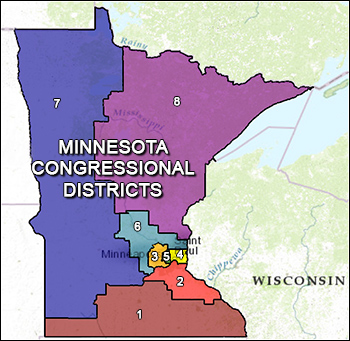By Jim Ellis
March 11, 2021 — Mason-Dixon Polling & Strategy completed a new Florida political poll testing Sen. Marco Rubio’s (R) standing as he begins to construct a re-election campaign for a third term.Though M-D did not test Sen. Rubio against another potential opponent, either Democratic or Republican, they did ask whether the respondents would vote to re-elect him.
The poll, conducted during the Feb. 24-28 period, asked a sampling universe of 625 Florida registered voters a series of questions about Sen. Rubio and President Joe Biden. The results identified areas of political strength and potential weakness for the Republican senator and contrasted them with those for the new president.
According to the data, Sen. Rubio posts a 47:42 percent positive job approval rating statewide. This compares to President Biden already landing in slight upside-down territory, 47:49 percent.
Asking whether the respondents would vote to re-elect Sen. Rubio, by a margin of 46-40 percent, the sampling group participants said they would. Region, gender, age, ethnicity, and party registration segmented the respondent universe.
Comparing Sen. Rubio and President Biden’s numbers, the results were almost exactly opposite. From geographic regions, Sen. Rubio recorded positive numbers in north and central Florida, the Tampa Bay area, and southwest Florida. He was upside-down in the southeastern part of the state. For President Biden, his disapproval scores outpaced his approval ratings in all but southeast Florida.
In terms of gender, President Biden does better with women than men (49:46 percent, female; 45:53 percent, male), while Sen. Rubio is much more positive with men (51:39 percent, male; 44:45 percent, female). President Biden does well with those 50 years of age and younger (51:44 percent positive), while he falls into negative territory with those aged 50 and older (44:53 percent). Again, Sen. Rubio scores the exact opposite (39:48 percent, <50; 54:37 percent, >50).
In the race segment, it is not surprising that President Biden’s strongest group was blacks, where he scored an 86:9 percent favorability rating. Among whites, the president was upside-down, recording a 38:59 percent negative ratio. Again, unsurprisingly, Senator Rubio performed in the opposite manner. He posted a 51:39 percent approval ratio with whites and a negative 15:69 percent ratio with blacks.




 Jan. 9, 2020 — The Mason-Dixon Polling & Strategy company surveyed the Georgia electorate to test President Donald Trump’s approval rating after being impeached in the House and, as in several other places, his Peach State standing appears slightly better today than it was in the previous year.
Jan. 9, 2020 — The Mason-Dixon Polling & Strategy company surveyed the Georgia electorate to test President Donald Trump’s approval rating after being impeached in the House and, as in several other places, his Peach State standing appears slightly better today than it was in the previous year. Dec. 20, 2019 — As the most recent polling from national research sources and in key states shows President Trump gaining political strength, the US House last night, on a virtual party line vote, approved the resolution to send the Articles of Impeachment to the US Senate for trial.
Dec. 20, 2019 — As the most recent polling from national research sources and in key states shows President Trump gaining political strength, the US House last night, on a virtual party line vote, approved the resolution to send the Articles of Impeachment to the US Senate for trial. 
